Journal Boards
Editor in Chief
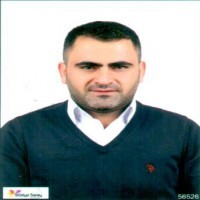
Editors/Fields Editors

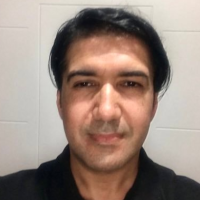
Editorial Board

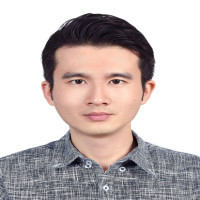

F.Gül Koçsoy graduated from the Department of English Language and Literature at Ataturk University in Erzurum. She completed her MA on Katherine Anne Porter’s short fiction and her Doctorate on Willa Cather’s novels. After her graduation from the university, she worked as an English teacher for four years in Erzurum and as an instructor at Karadeniz Technical University in Trabzon for eight years. Currently, she works as an Associate Prof. Dr. at Firat University in Elazig, Turkey. Her research interests are American culture and literature. He teaches American literature. In recent years, she has taught academic writing, translation and textual analysis.

A graduate of the University of Warsaw with a PhD in the humanities. A lecturer in Russian at the Centre for Foreign Language Teaching at the University of Warsaw. An experienced teacher and certified examiner at all levels of language education. Co-author of the Russian language textbooks Prosto klass and #русский язык. She has gained her experience teaching in Warsaw language schools, delivering corporate language training, and working with individual students. Passionate about teaching and lifelong learning.
Erzincan’da doğdum. İlk, orta, lise öğrenimini Erzincan’da yaptı. Hacettepe Üniversitesi Fransız Dili ve Edebiyatı Bölümü’nde lisansını tamamladıktan sonra Milli Eğitim Bakanlığı’na bağlı çeşitli orta öğretim kurumlarında altı yıl süreyle Fransızca ve Türkçe öğretmenliği yaptım Cumhuriyet Üniversitesi Fransız Dili ve Edebiyatı Bölümü’nde öğretim görevlisi olarak çalışırken, yüksek lisansını Hacettepe Üniversitesi Sosyal Bilimler Enstitüsü Fransız Dili ve Edebiyatı Anabilim Dalı’nda “La Mystique dans Les Fleurs du Mal” başlıklı tez çalışması ile tamamladım. Yine Hacettepe Üniversitesi Sosyal Bilimler Enstitüsü Fransız Dili ve Edebiyatı Anabilim Dalı’nda “La Quête de Soi dans les Oeuvres Romanesques de Jean-Marie Gustave Le Clézio” başlıklı çalışması ile doktor unvanı aldım ve ardından Cumhuriyet Üniversitesi Fransız Dili ve Edebiyatı Bölümü’ne Yrd. Doç. Dr. Unvanı ile öğretim üyesi olarak atandım. 2012 yılında Pamukkale Üniversitesi Fransız Dili ve Edebiyatı Bölümü’ne geçiş yaptım. Halen aynı üniversitede Doçent unvanı ile öğretim üyesi olarak çalışmayı sürdürmekteyim. Çeşitli bilimsel dergilerde 18.yüzyıl, 19. Yüzyıl ve Çağdaş Fransız Edebiyatı, simgeci Fransız Şiiri, sürrealist şiir ve özellikle Baudelaire şiiri hakkında yayımlanmış makalelerim ve kitap bölümlerim bulunmaktadır. Bunun yanında çeşitli e-dergilerde yazı, şiir ve çevirilerim yayınlanmıştır. Çalıştığım kurumda profesörlük için şartları yerine getirmiş bulunmaktayım ve bu unvan için kadro beklemekteyim.
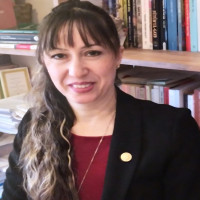
İstanbul doğumlu olan Funda Kızıler, ilk, orta ve lise öğrenimlerini İstanbul’da tamamladı. Atatürk Üniversitesi Alman Dili ve Edebiyatı Bölümü’ndeki lisans öğrenimini 1996’da bölüm birincisi olarak bitiren Kızıler, 1997 yılında aynı üniversitede Araştırma Gör. olarak çalışmaya başladı. “Hermann Hesse’nin Boncuk Oyunu Adlı Yapıtında Ütopik Us Dünyası” (1998) başlıklı çalışmasıyla yüksek lisans, “Patrick Süskind’in Parfüm Adlı Romanında Modernist ve Postmodernist Açılımlar” (2003) başlıklı çalışmasıyla doktora öğrenimini tamamladı. Sakarya Üniversitesi Alman Dili ve Edebiyatı Bölümü’nde Profesör Dr. olarak görev yapmaktadır.
Language Editors
Graphic Design Manager
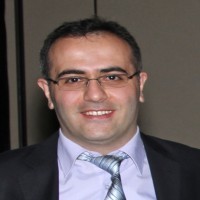
International Advisory Board

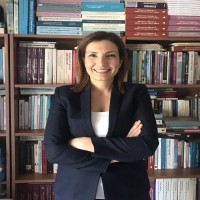
https://avesis.ankara.edu.tr/ydbozkus
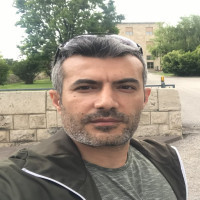




* It is important for our reviewers to enter their fields of expertise in detail in terms of assigning reviewers in the process.


